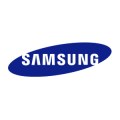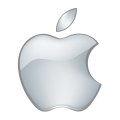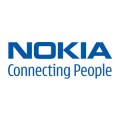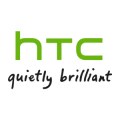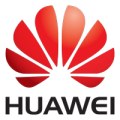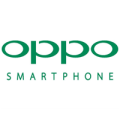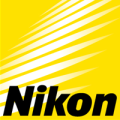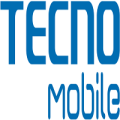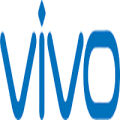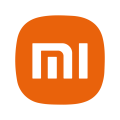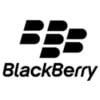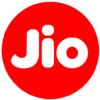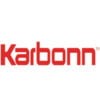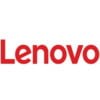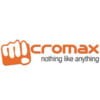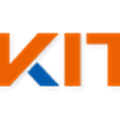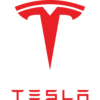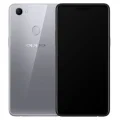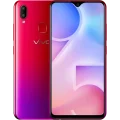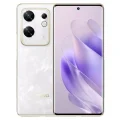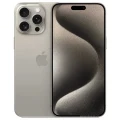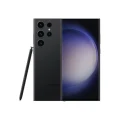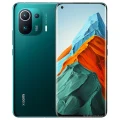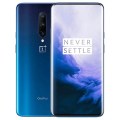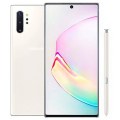- Awesome page
- Latest Mobile
- Smartphones
- Google Pixel 7a
Google Pixel 7a
Google Pixel 7a Price in Bangladesh
The Google Pixel 7a is a mid-range smartphone priced around BDT 48,000 in Bangladesh. It offers a high-quality display, a capable camera system with advanced computational photography features, and fast charging capabilities. It’s a popular choice among users who prioritize value for money and Google’s software integration.
Specifications
General
| Model | Google Pixel 7a |
| Announced | 2023, May 10 |
| Released | 2023, May 10 |
| Status | Available |
| Unofficial price | 8GB 128GB ৳48,000 |
Design
| Dimensions | 152 x 72.9 x 9 mm (5.98 x 2.87 x 0.35 in) |
| Weight | 193.5 g (6.84 oz) |
| Colors |
Charcoal, Snow, Sea, Coral |
Network
| Technology | GSM / HSPA / 5G |
| 2G Network |
GSM 850 / 900 / 1800 / 1900 |
| 3G Network |
HSDPA 850 / 900 / 1700(AWS) / 1900 / 2100 |
| 4G Network |
SA/NSA/Sub6 - International SA/NSA/Sub6/mmWave - USA |
| GPRS <strong>GPRS</strong> (General Packet Radio Service) is a packet oriented mobile data service on the 2G and 3G cellular communication system's global system for mobile communications (GSM), Generally, GPRS is used for the purpose of wireless data transfer, such as sharing pictures and videos or browsing the Internet via a mobile phone connection. | |
| EDGE <strong>EDGE</strong> (Enhanced Data GSM Environment) is a wireless network technology generally considered the next step in the 2G network offers data transfer rates up to four times faster than ordinary GSM networks, Generally, EDGE is used for the purpose of wireless data transfer, such as sharing pictures and videos or browsing the Internet via a mobile phone connection. | |
| Speed | HSPA, LTE-A (CA), 5G |
Display
| Display Type <strong>Display Technology => </strong> A number of display technologies and types used in mobile phones => TFT (Thin Film Transistor), IPS (In-Place Switching), OLED (Organic Light Emitting Diode), AMOLED (Active-Matrix Organic Light-Emitting Diode), Super AMOLED (an even advanced version of AMOLED), Resistive Touchscreen (Resistive touchscreens contain two layer of conductive material with a very small gap between them which acts as a resistance), Capacitive Touchsceen (Capacitive touchscreen technology consists of a layer of glass coated with a transparent conductor) | OLED capacitive touchscreen, 16M colors |
| Size | 6.1 inches, 90.7 cm2 (~81.8% screen-to-body ratio) |
| Resolution | 1080 x 2400 pixels, 20:9 ratio (~429 ppi density) |
| Features |
Corning Gorilla Glass 3 HDR, 90Hz Always-on display |
Camera
Main camera
| Camera Setup | Dual |
| Primary <strong>Camera</strong> is able to capture photographs and usually videos, The most important characteristics of a camera are the resolution (measured in megapixels), lens focus type (fixed or automatic), higher megapixel cameras are known to capture higher quality photos, but not always a good measurement of the photos quality. |
64 MP, f/1.9, 26mm (wide), 1/1.73&amp;quot;, 0.8µm, Dual Pixel PDAF, OIS 13 MP, f/2.2, 120˚ (ultrawide), 1.12µm |
| Features |
Dual-LED flash, Pixel Shift, Auto-HDR, panorama |
| Video | 4K@30/60fps, 1080p@30/60/120/240fps; gyro-EIS, OIS |
Selfie camera
| Camera Setup | Single |
| Primary <strong>Camera</strong> is able to capture photographs and usually videos, The most important characteristics of a camera are the resolution (measured in megapixels), lens focus type (fixed or automatic), higher megapixel cameras are known to capture higher quality photos, but not always a good measurement of the photos quality. |
13 MP, f/2.2, 20mm (ultrawide), 1.12µm |
| Features |
Auto-HDR |
| Video | 1080p@30fps |
Hardware
| Chipset <strong>Chipset</strong> is a group of integrated circuits designed to perform one or a more dedicated functions, often with real time computing constraints, Popular smartphones are equipped with more advanced embedded chipsets that can do many different tasks depending on their programming. | Google Tensor G2 (5 nm) |
| CPU <strong>CPU</strong> (Central Processing Unit) mostly known as processors, CPU processes instructions in order to carry out certain functions that make your device operate properly. Processors are often described as the brain of computers, smartphones and tablets, Smartphones and tablets rely on processors to carry out their every task, Processors are an incredibly important factor in selecting any type of computing device, including your smartphone. | Octa-core (2x2.85 GHz Cortex-X1 & 2x2.35 GHz Cortex-A78 & 4x1.80 GHz Cortex-A55) |
| GPU <strong>GPU</strong> (Graphics Processing Unit) is a single-chip processor designed to rapidly manipulate and alter memory to accelerate the creation of images in a frame buffer intended for output to a display, This includes things such as lighting effects, object transformations, and 3D motion. | Mali-G710 MP7 |
| RAM (Memory) <strong>RAM</strong> (Random Access Memory) is a type of computer memory that can be accessed randomly, any byte of memory can be accessed without touching the preceding bytes that allows information to be stored and accessed quickly from random locations. RAM is the most common type of memory found in computer systems, smartphones, tablets and other electronic devices. | 8 GB |
| Internal Storage <strong>Internal Storage</strong> is a data storage space (flash memory) mostly used in smartphones, tablets and other electronic devices where operating system, apps, music, photos, videos, files and other user data Is stored. | 128 GB UFS 3.1 |
| Sensors <strong>Sensors</strong> are electronic components that detects and responds to some type of input from the physical environment. The specific input could be light, heat, motion, moisture, pressure and location, The output is generally a signal that is converted to use in computing systems, a location sensor, such as a GPS receiver is able to detect current location of your electronic device. |
Fingerprint (under display, optical), accelerometer, gyro, proximity, compass, barometer |
Connectivity
| Bluetooth <strong>Bluetooth</strong> is a wireless communications technology for exchanging data between mobile phones, headsets, computers and other network devices over short distances without wires, Bluetooth technology was primarily designed to support simple wireless networking of personal consumer devices. | 5.3, A2DP, LE |
| Infrared <strong>Infrared</strong> connectivity is an old wireless technology used to connect two electronic devices. It uses a beam of infrared light to transmit information and so requires direct line of sight and operates only at close range. | |
| USB | USB Type-C 3.2 |
| GPS <strong>GPS</strong> The Global Positioning System is a satellite-based radio navigation system, GPS permits users to determine their position, velocity and the time 24 hours a day, in all weather, anywhere in the world, In order to locate your position, your device or GPS receiver must have a clear view of the sky. | GPS, GLONASS, GALILEO, QZSS |
| NFC <strong>NFC</strong> (Near field communication) is a set of standards for smartphones and similar devices to establish peer-to-peer radio communications with each other by touching them together or bringing them into proximity, usually no more than a few inches. |
Battery
| Battery Type <strong>Battery Type => </strong> Cell phones run on various kinds of batteries depending on the manufacturer, phone size or shape and features. There are basically four types of cell phone batteries => Lithium Polymer, Lithium Ion, Nickel Metal Hydride and Nickel Cadmium. | Non-Removable Li-Po |
| Capacity <strong>Battery Capacity</strong> is a measure (typically in Amp-hr) of the charge stored by the battery, and is determined by the mass of active material contained in the battery. The battery capacity represents the maximum amount of energy that can be extracted from the battery under certain conditions. | 4385 mAh |
| Charging Charging | 20W wired, PD3.0 18W wireless |
Google Pixel 7a Review Unveiled for Tech Enthusiasts
The Google Pixel series has carved out a significant niche in the smartphone market by focusing on delivering exceptional software experiences and camera capabilities. Since the launch of the first Pixel phone in 2016, Google has consistently pushed boundaries to cater to tech enthusiasts and general smartphone users alike. This review of the Google Pixel 7a aims to provide insights into what makes this device stand out, offering a comprehensive look at its features, performance, and overall value.
For those who have followed Google’s smartphone evolution, the Pixel 7a represents another step in the direction of affordable excellence. In this review, we’ll explore the design, camera capabilities, performance, and more to help you decide if it’s the right fit for your tech-savvy lifestyle.
Design and Build Quality
The Pixel 7a continues Google’s tradition of minimalist design, boasting clean lines and a sleek silhouette. The device is constructed with high-quality materials, including an aluminum frame and a durable plastic back that resists fingerprints and scratches. This combination gives the phone a robust feel without sacrificing aesthetics.
Ergonomically, the Pixel 7a is designed to sit comfortably in the hand, making it easy for one-handed use. The placement of buttons and ports is intuitive, allowing effortless access to the volume rockers and power button. The lightweight build ensures it doesn’t weigh you down during extended use.
Display
The Pixel 7a features a 6.1-inch OLED display with a resolution of 2400 x 1080 pixels. This screen size offers a sweet spot for those who enjoy media consumption without the bulk of larger devices. The display provides vibrant colors and deep blacks, making it a delight for watching videos or playing games.
When it comes to gaming, the Pixel 7a doesn’t disappoint. The responsive touch and smooth graphics render a captivating experience for gamers. Noteworthy features include HDR support, which enhances image quality by expanding color contrast and brightness.
Camera Performance
The Pixel 7a’s camera setup includes a dual-lens system featuring a 12.2 MP main camera and a 16 MP ultra-wide lens. This configuration allows users to capture stunning images with ease. In various lighting conditions, the camera excels, producing sharp and detailed photos even in low light, thanks to Google’s renowned Night Sight mode.
Video recording on the Pixel 7a supports up to 4K resolution, providing clear and stable footage aided by image stabilization technology. Other special modes, such as Portrait and Motion Auto-Focus, further enhance the camera’s versatility, making it a strong contender for photography enthusiasts.
Performance and Battery Life
Powered by Google’s custom-made Tensor chip and 6 GB of RAM, the Pixel 7a ensures smooth performance across applications. Users will notice impressive speed and efficiency, particularly in multitasking scenarios where switching between apps is seamless.
The phone’s battery capacity of 4,600 mAh supports a full day of use under typical conditions. Even with heavy usage, such as streaming or gaming, the device manages to hold charge effectively. Additionally, fast charging capabilities mean you can quickly top up when needed.
Software and Features
Running on the latest Android OS, the Pixel 7a presents a user-friendly interface with regular updates and security patches directly from Google. Exclusive software features like Live Translate and Call Screen offer practical functionality, enhancing the overall user experience.
Customization options are plentiful, allowing users to tailor their device settings to suit personal preferences. From theme changes to app arrangements, the Pixel 7a ensures that your smartphone experience is as unique as you are.
Pricing and Value Proposition
At a competitive price point in the mid-range segment, the Pixel 7a offers exceptional value. When compared to other smartphones within the same category, its standout features, such as superior camera performance and seamless software integration, make it a compelling choice.
The cost-to-value ratio of the Pixel 7a is attractive, especially for those seeking high-quality features without investing in a flagship model. Google’s commitment to delivering innovation at a reasonable price is clearly demonstrated in this device.
Conclusion
In summary, the Google Pixel 7a is a well-rounded smartphone that holds its own in a crowded market. With its impressive camera system, efficient performance, and thoughtful design, it appeals to tech enthusiasts and everyday users alike. Whether you’re a photography buff, a gaming aficionado, or someone who values a smooth user experience, the Pixel 7a has something to offer.
Looking ahead, expectations remain high for future iterations of the Google Pixel series. For now, the Pixel 7a stands as a testament to Google’s dedication to pushing the boundaries of what’s possible in mobile technology. Ready to elevate your smartphone game? Explore the Google Pixel 7a today and see what it can do for you.
